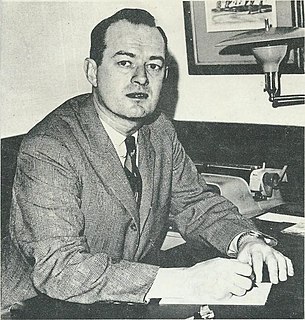A Quote by Daniel Patrick Moynihan
It is perhaps common in the world for individuals and nations to suffer for their noble qualities more than for their ignoble ones. For nobility is an occasion for pride, the most treacherous of sentiments.
Related Quotes
Never sound pompous. You always sound noble, noble. Absolute character of music is nobility. Even popular music can be noble, you see. If it's not noble, then it's not very good... Music is an art of emotion, of nobility, of dignity, of greatness, of love, of tenderness. All that must be brought out in music but never a show of pompousness.
Hackman's paradox: Groups have natural advantages: they have more resources than individuals; greater diversity of resources; more flexibility in deploying the resources; many opportunities for collective learning; and, the potential for synergy. Yet studies show that their actual performance often is subpar relative to "nominal" groups (i.e. individuals given the same task but their results are pooled.) The two most common reasons: groups are assigned work that is better done by individuals or are structured in ways that cap their full potential.
No profession or occupation is more pleasing than the military; a profession or exercise both noble in execution (for the strongest, most generous and proudest of all virtues is true valor) and noble in its cause. No utility either more just or universal than the protection of the repose or defense of the greatness of one's country. The company and daily conversation of so many noble, young and active men cannot but be well-pleasing to you.
Pride differs in many things from vanity, and by gradations that never blend, although they may be somewhat indistinguishable. Pride may perhaps be termed a too high opinion of ourselves founded on the overrating of certain qualities that we do actually possess; whereas vanity is more easily satisfied, and can extract a feeling of self-complacency from qualifications that are imaginary.

































